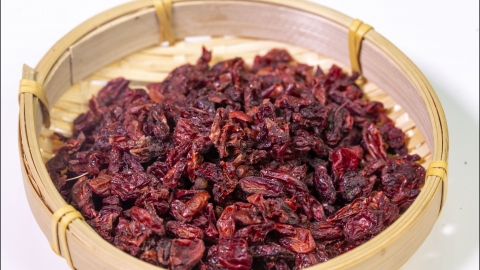Can patients with uterine fibroids take Cornus officinalis (Shanzhuyu)?
Uterine fibroid patients can usually follow medical advice to consume a moderate amount of cornus officinalis (Shanzhuyu) if their condition is stable. However, it is not recommended when the condition is complicated or if there is internal damp-heat or blood stasis. If in doubt, it is advisable to seek medical consultation in advance. Detailed explanation is as follows:

When the condition of uterine fibroids is relatively stable and there are no obvious heat-related symptoms such as dry mouth, irritability, or anger, moderate consumption of cornus officinalis may be beneficial to the body. Cornus officinalis has the function of nourishing the liver and kidneys and consolidating vital essence, which may help improve symptoms such as physical weakness, fatigue, and soreness in the waist and knees caused by insufficiency of the liver and kidneys.
If patients with uterine fibroids have symptoms of damp-heat or blood stasis, then cornus officinalis should not be consumed. Cornus officinalis is rich in texture and may easily exacerbate damp-heat conditions, worsening symptoms such as abnormal vaginal discharge, abdominal distension, or thick greasy tongue coating. Additionally, uterine fibroids are closely related to hormonal levels and blood circulation. The astringent properties of cornus officinalis may hinder the circulation of qi and blood, and could even indirectly affect the progression of the disease.
If patients experience allergic reactions to cornus officinalis, such as rashes or itching, consumption should be stopped immediately and medical attention should be sought promptly.





